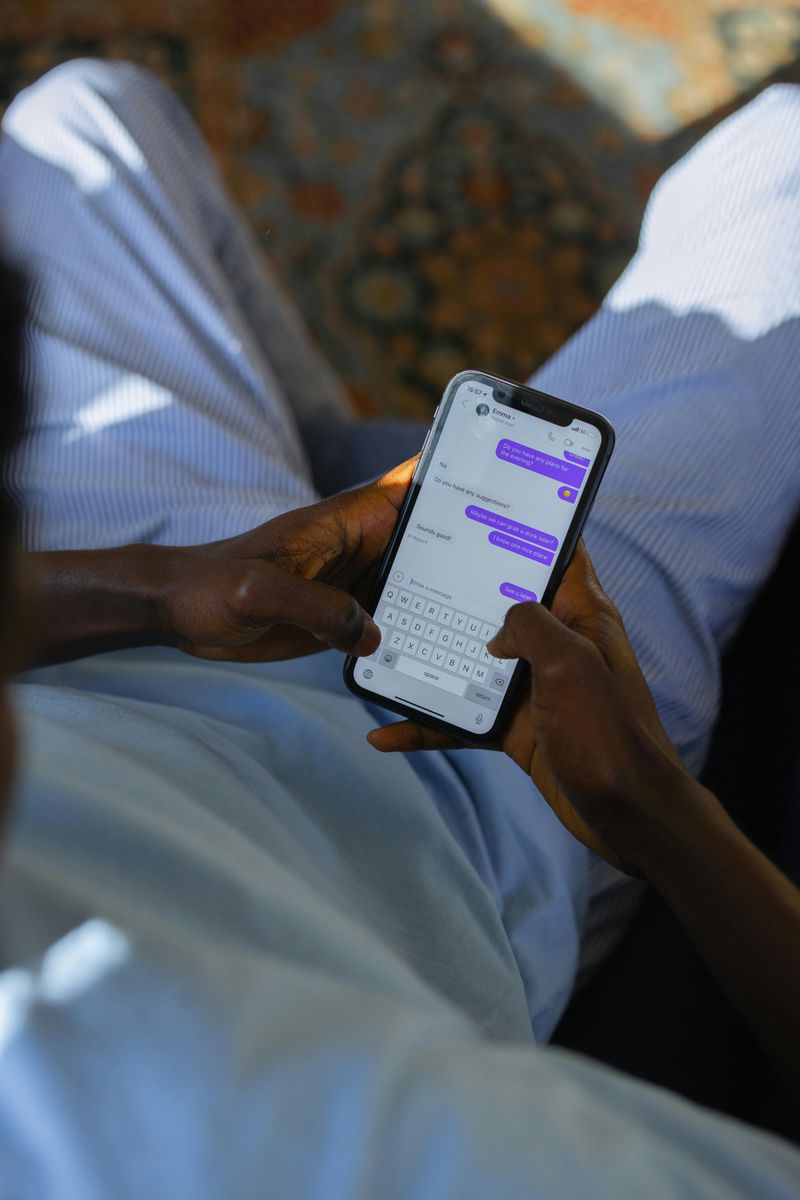11 Subtle Texts That Reveal He’s Losing Interest Before He Says It Out Loud

Communication in relationships often transcends words, weaving through subtleties like tone, frequency, and context. In today’s fast-paced world, texting has become a primary mode of communication, making it crucial to recognize when things are amiss. Words—or the lack thereof—can speak volumes about the status of a relationship.
When interest starts waning, it frequently surfaces in the way messages are crafted and delivered. Understanding these signs can help you address concerns before they become insurmountable. This post explores 11 subtle texting patterns that might suggest he’s disengaging emotionally, even before he verbally acknowledges it. Recognizing these signs early can lead to more honest and productive conversations.
1. The One-Word Replies

The one-word reply is the conversational equivalent of a shrug. It’s as if the enthusiasm and curiosity that once drove lively exchanges have suddenly vanished. A cascade of short responses—like “Yeah,” “Sure,” or the dreaded “K”—replaces what used to be engaging dialogue.
This pattern can signal that the conversation feels more like a chore than a joy. When words become scarce, it often indicates that emotional investment is dwindling. The once-vibrant exchange fades, leaving behind a stark, minimalist communication style that speaks volumes about underlying disinterest.
If you’re met with an increasing number of terse replies, it might be time to address the lack of engagement.
2. The Delayed Responses That Never Come With a Real Excuse

He used to reply almost instantaneously, eager to connect and converse. Now, hours—or even days—pass without a word. The long pauses are rarely accompanied by explanations, leaving a void that’s hard to ignore.
This shift from prompt engagement to delayed communication can feel like an emotional brick wall. It’s not just about being busy; it’s often a sign of a deeper disengagement.
When messages languish unanswered, it’s a signal that the relationship might be taking a backseat to other priorities. Addressing this lapse can reveal whether it’s truly a scheduling issue or something more concerning.
3. The Dry “Good Morning” or “Good Night” Texts

Once upon a time, these texts were filled with warmth, a tiny digital hug to start and end the day. Now, they arrive like clockwork but lack any real emotion.
These messages have become mechanical, devoid of the affection they once carried. The transition from sweet to perfunctory can be jarring, leaving you wondering where the intimacy went.
Such routine messages, stripped of their cozy charm, might signal an emotional withdrawal. If these once special texts feel empty, it’s worth examining what’s driving the change in tone.
4. The Ghostly “Sorry, I Fell Asleep”

“Sorry, I fell asleep” can feel like a haunting refrain when it becomes the norm rather than an exception. Initially, it might seem like a plausible reason for late-night silence.
However, when this becomes a pattern, it can signify a lack of prioritization in the relationship. It’s no longer about actual fatigue; it’s about choosing comfort over connection.
This phrase often marks the transition from interest to indifference. When apologies for nodding off become frequent, it’s a cue to explore whether the relationship still holds the same importance for him.
5. The “Haha” or “Lol” as a Conversation Ender

Once a sign of shared laughter, “Haha” or “Lol” now feels like a door slamming shut on the conversation. Instead of igniting further dialogue, it becomes a convenient way to disengage.
These fillers, when used excessively, suggest a desire to wrap things up rather than delve deeper. The casual humor that once bonded you now seems like an excuse to avoid meaningful interaction.
When every joke ends, rather than sparks, the conversation, it’s a red flag indicating waning interest. This pattern can leave the relationship feeling perfunctory and distant.
6. The Overly Polite Replies

“Thanks!” and “Appreciate it” might come across as polite, yet they lack the warmth and familiarity expected in a close relationship. It’s as if affection has been swapped for formality.
These overly courteous responses can feel like a polite barrier, keeping emotional distance in place. When endearments and playful banter are replaced with formalities, the emotional connection starts to fray.
This shift in tone can create an undercurrent of detachment, making interactions feel more like transactions. It’s a sign that emotional checked-out may be on the horizon if not already present.
7. The Sudden Overuse of Emojis or None at All

Emojis, once sprinkled playfully in your conversations, now appear in overwhelming numbers or have vanished entirely. Both extremes might signal trouble.
Overusing emojis can feel like forced enthusiasm, a way to mask what’s missing in the actual words. Conversely, a sudden lack of emojis can strip messages of their previous vibrancy.
These changes in emoji use can indicate a shift in emotional tone. Whether it’s artificial cheerfulness or stark minimalism, both can hint at disinterest replacing genuine communication. Observing these patterns can reveal underlying issues.
8. The “I’ve Been Busy” Text

“I’ve been busy” is a common excuse, but when it becomes a constant refrain, it may signal a deeper issue. Everyone has commitments, yet this phrase can suggest a shifting hierarchy of priorities.
Repeated use of this excuse often means you’ve moved down the priority list. It’s a subtle way of reallocating time and attention elsewhere without explicitly saying so.
If “busy” becomes the go-to explanation, it’s crucial to consider what it says about the relationship’s current standing. It may be time to discuss whether the balance between time and interest has shifted.
9. The Shift from “We” to “I”

Language is powerful, and the subtle shift from “We” to “I” can speak volumes. What was once a shared future now feels like an individual narrative.
This change might indicate that he’s mentally detaching from the partnership. Those plans that once included both of you have become solitary ventures.
When collaborative language disappears, it often signals that the relationship is fading from his mind. This linguistic shift suggests a reevaluation of the partnership’s significance, prompting a conversation about future intentions.
10. The Random “Hope You’re Good” Check-In

“Hope you’re good” sounds thoughtful, but when isolated, it can feel like a polite formality rather than genuine concern. This phrase often acts as a closure disguised as a courtesy.
It’s a way of keeping the door ajar without fully stepping through. The lack of follow-up questions or deeper engagement hints that rekindling the connection isn’t the primary aim.
This type of check-in might suggest testing the waters rather than diving back in. It’s important to discern whether this gesture is meant to maintain the relationship or gently distance it.
11. The Text That Never Comes

Silence can be deafening. The absence of messages speaks volumes, often louder than words ever could. When he stops texting entirely, it might mean he’s already communicated everything—just without using words.
The emptiness of an unanswered phone can feel chilling, a sign that there’s nothing left to say or share. This void can be the unspoken acknowledgment of an emotional withdrawal.
When the effort to communicate stalls, it’s a powerful indicator that interest has dissipated. Silence, in this context, becomes a message of its own, conveying more than words ever could.

Comments
Loading…